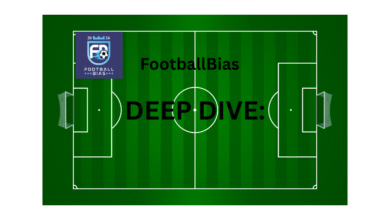Part 2 : How Social Media Took Over Football
From Banter to Backlash

There’s also the new wave of parody accounts and “banter names” that make the culture even livelier. Names like Evil Saka, 9llingham, Ekitiktok, Lil Uzi Wirtz, and Acunha Matata have become part of football’s digital language. Their wordplay, memes, and unserious takes add color to the conversation. It’s not just analysis anymore, it’s entertainment, inside jokes, and creativity that keep the sport feeling fresh and communal.
For years, the Twitter account “Has Mbappé Scored a Free Kick?” was one of football’s most reliable running jokes. Every few weeks, it would post the same dry update “No” with a meme. No debate, no context, just that single word. It became a ritual. Each time Mbappé stood over a dead ball, fans from every corner of football Twitter would flood timelines, waiting for that inevitable update.
But it finally happened, Mbappé buried one and in the biggest game in football, the El Clasico. Practically every fan that had social media access thought of the account when he scored and everyone rushed to Twitter. Within minutes, the account posted the simple, absolutely stunned update, a Walter White Meme from the hit series “Breaking Bad” showing his despair and shock. The tweet exploded instantly, pulling in thousands of likes and reposts within minutes. Years of buildup and running jokes came to an end with one goal and somehow, it felt like a collective moment across football Twitter. That account didn’t just run an agenda it proved how social media gives football its own shared folklore. A lighthearted joke that started as banter became a long-running storyline fans followed for years and when the punchline finally flipped, it wasn’t just about the goal,it was about the shared experience of watching it happen together.
This kind of fan-driven content carries real weight now. A viral clip or trending opinion can change how a player or club is perceived. A single post can amplify praise or ignite backlash. Modern football lives in that tension between entertainment and analysis, between harmless jokes and reputation-defining moments. It’s chaotic, sure, but it’s also part of what makes football today so engaging. The sport no longer stops when the final whistle blows, it just moves to the timeline.
Now, players don’t just play football anymore , they manage brands, audiences, and narratives. The online space has practically become part of the job description. Some embrace it, using social media as a way to connect directly with fans and control their own image. Others avoid it entirely, choosing silence over the noise.
You see it in the personalities that thrive online. Players like Jude Bellingham, Rodrygo, Lamine Yamal, Vinicius Junior Alejandro Garnacho, and Erling Haaland lean into the culture posting confident captions, reacting to memes, and occasionally feeding the banter themselves. They understand that presence off the pitch shapes perception almost as much as performances on it. A good post after a big game can travel as far as the highlight itself.
Then there are the quieter ones, like Rodri ,the players who stay off social media or use it strictly for club promos. For them, it’s not worth the chaos. Every tweet or post risks misinterpretation, and every offhand joke can turn into headlines. That’s why many now have digital teams or PR handlers running their accounts because it’s not just about communication anymore, it’s about control.
Social media has blurred the line between athlete and personality. Footballers are expected to entertain, market, and inspire, all while staying bulletproof to criticism. Some play the media game, others just play football. But either way, no one gets to stay off the grid anymore, not in this era where the conversation never stops.
Banter has always been part of football. Even in the early 2000s, players got stick from rival fans, pundits cracked jokes, and tabloids ran cheeky headlines. But it all had limits, inside stadiums, pubs, or printed pages. You could switch it off. Once the match ended, the noise tended to end too.
That line doesn’t exist these days. The same platforms that make football fun and interactive have also made it relentless. A bad performance can turn a player’s comment section into a pile-on within minutes chock-full with insults, slurs, and cheap jokes flooding in from people hiding behind profile pictures. Racism, especially, remains a huge problem. Players like Vinícius Jr., Rashford, and Saka have all faced abuse after a single miss or poor result. It has escalated from criticism to targeted harassment.
And yet, there’s still a side of football social media that captures what makes the sport great: the humor, the creativity, the shared reactions. Fans trade banter, celebrate wins, and keep the game alive in ways older generations never could. That’s the balance the modern era is perhaps struggling to find keeping the fun without inciting hate.
Social media has changed football forever, for better and for worse. It’s given fans a voice, players a platform, and the sport a constant pulse that never really stops. But it has also blurred the line between support and abuse, between fun and obsession.
The game now lives on screens as much as on pitches, and learning to handle that reality is part of modern football. Social media didn’t invent banter, it just amplified it. The challenge now is to protect the human side of football while keeping the joy and connection that make the sport what it is.







